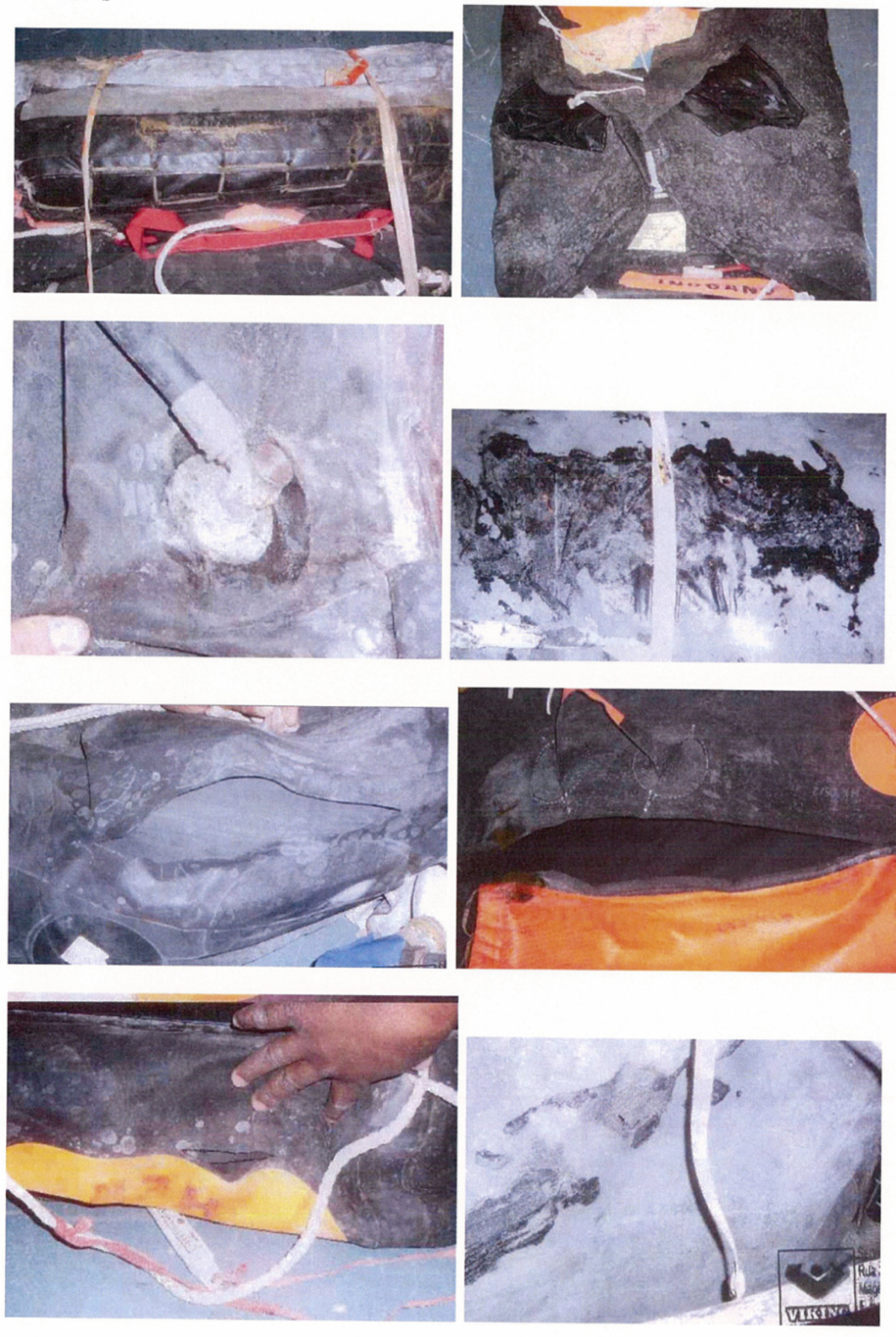Failure of life rafts during servicing
- Safety Flash
- Published on 14 July 2010
- Generated on 24 April 2025
- IMCA SF 04/10
- 2 minute read
Jump to:
A Member has reported an incident in which four life rafts sent ashore for annual servicing had to be condemned and replaced.
What happened?
The rafts had been serviced by a sub-contractor in the previous year and no defects were noted. Subsequently it was found that that sub-contractor had lost its license and certification as a life rafting testing station.

Images of damaged life rafts
The following defects were discovered:
- The four rafts were found to be suffering from water ingress and corrosion.
- Severe oxidation was found on 20% of the buoyancy chambers, moderate oxidation on 10% of the total area and 35% of the canopy.
- On one raft the protective cover was missing from the inflation cylinder valve and the inflation tube was highly oxidised.
- When the International Maritime Organization (IMO) inflation test was carried out, leaks were observed and the buoyancy chambers burst near the connections of the survival pack and connections to the inflation cylinders.
The rafts would not have worked in the event of an emergency, potentially leaving the vessel crew with no means of escape.
The following recommendations were made:
- All life-saving equipment should be inspected closely following shore-side servicing to verify that the servicing indicated has been properly and thoroughly carried out. Some clear pointers to assist in this process could be:
- Life raft sealing bands show signs of having been replaced
- Evidence of talcum powder on exposed runner of life rafts indicates that the raft was opened and additional talcum powder was applied during repacking
- Service labels updated on life raft wallet.
IMCA Safety Flashes summarise key safety matters and incidents, allowing lessons to be more easily learnt for the benefit of the entire offshore industry.
The effectiveness of the IMCA Safety Flash system depends on the industry sharing information and so avoiding repeat incidents. Incidents are classified according to IOGP's Life Saving Rules.
All information is anonymised or sanitised, as appropriate, and warnings for graphic content included where possible.
IMCA makes every effort to ensure both the accuracy and reliability of the information shared, but is not be liable for any guidance and/or recommendation and/or statement herein contained.
The information contained in this document does not fulfil or replace any individual's or Member's legal, regulatory or other duties or obligations in respect of their operations. Individuals and Members remain solely responsible for the safe, lawful and proper conduct of their operations.
Share your safety incidents with IMCA online. Sign-up to receive Safety Flashes straight to your email.